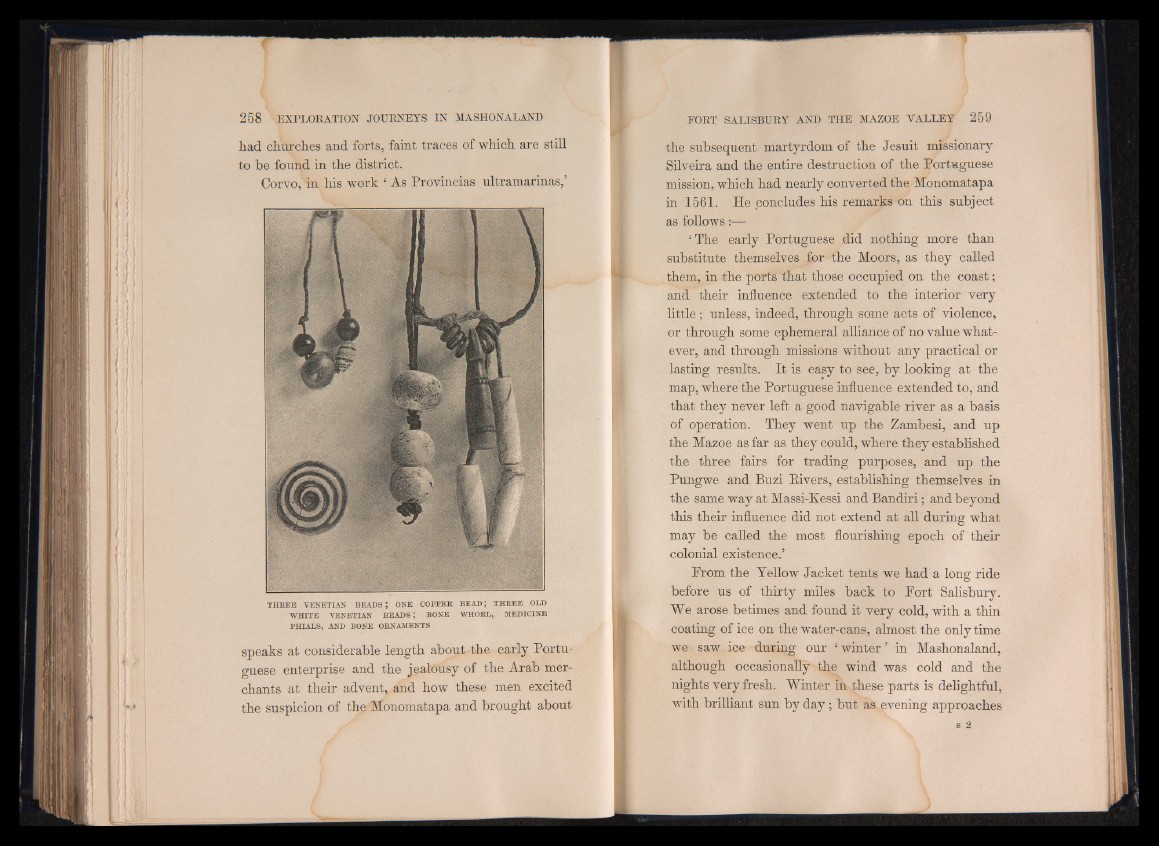
had churches and forts, faint traces of which are still
to be found in the district.
Corvo, in his work ‘ As Provincias ultramarinas,’
T H R E E V E N E T IA N B EA D S ; ON E C O P P E R B E A D ; T H R E E OLD
W H IT E V EN E T IA N B E A D S ; BO N E W H O R L , M ED IC IN E
PH IA L S , AND BO NE ORNAMENTS
speaks at considerable length about the early Portuguese
enterprise and the jealousy of the Arab merchants
at their advent, and how these men excited
the suspicion of the Monomatapa and brought about
the subsequent martyrdom of the Jesuit missionary
Silveira and the entire destruction of the Portuguese
mission, which had nearly converted the Monomatapa
in 1561. He concludes his remarks on this subject
as follows:—
‘ The early Portuguese did nothing more than
substitute themselves for the Moors, as they called
them, in the ports that those occupied on the coast;
and their influence extended to the interior very
little; unless, indeed, through some acts of violence,
or through some ephemeral alliance of no value whatever,
and through missions without any practical or
lasting results. It is easy to see, by looking at the
map, where the Portuguese influence extended to, and
that they never left a good navigable river as a basis
of operation. They went up the Zambesi, and up
the Mazoe as far as they could, where they established
the three fairs for trading purposes, and up the
Pungwe and Buzi Bivers, establishing themselves in
the same way at Massi-Kessi and Bandiri; and beyond
this their influence did not extend at all during what
may be called the most flourishing epoch of their
colonial existence.’
Prom the Yellow Jacket tents we had a long ride
before us of thirty miles back to Fort Salisbury.
We arose betimes and found it very cold, with a thin
coating of ice on the water-cans, almost the only time
we saw ice during our £ winter ’ in Mashonaland,
although occasionally the wind was cold and the
nights very fresh. Winter in these parts is delightful,
with brilliant sun by day; but as evening approaches
s 2